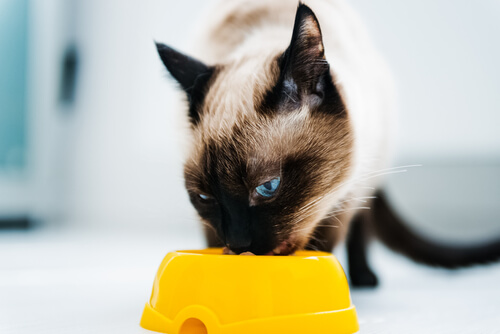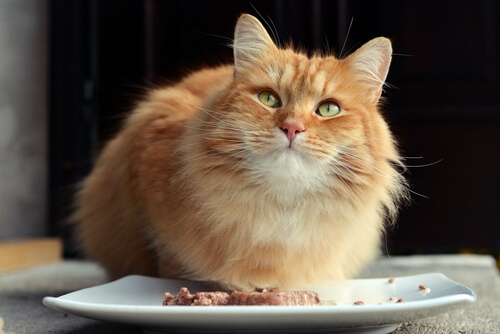Food Your Cat Will Love

While the proper diet of domestic felines, whether homemade or commercial, should be defined according to their weight and age (and thinking about their nutritional needs), we’re sure that your cat is still sure to demand some extra treats. Everything in its proper measure though, and with prior authorization of the veterinarian, we’ll tell you about some tasty food your cat will love.
The food your cat will love (without neglecting its diet)

While each cat is different and not every one will like the same thing, in this list of food your cat will love, it’s sure to find some of its favorite treats.
In addition, as you’ll surely know, your purring friend is very smart and has a great sense of smell. They’ll soon discover what they like and will find ways to let you know too!
Of course, you don’t want your cat to reject its regular diet and become overweight, so include a small portion of this food your cat will love in your calorie calculations.
Cats have a well-earned reputation as gourmet animals. So, in small portions and without unbalancing their diet, you can give them some treats they’ll surely love.
The list of food your cat will love to eat
Beyond the delicacies and treats that you can buy at the pet store which cats usually love, some food that you’ll have at home in your cupboards or refrigerator are also sure to delight your cat. Here they are:
Starting from the premise that these animals are carnivores, let’s start with the “dishes” that include animal protein. Here we’ll include meat from:
- Fish. They seem to prefer salmon, monkfish, and tuna. Don’t forget to remove the bones.
- Beef. Cut it into small portions, or give it to them chopped.
- Chicken or turkey. Avoid giving them the skins, which contain a lot of fat.
- Pork. They love it, and ham too. This explains why many commercial cat foods incorporate these ingredients in their formulas.
However, to avoid potential parasitosis, you should always give your pet cooked meat.
Milk and derivatives, among the preferred options for domestic cats
In addition, among the delicacies that your cat will surely demand, are dairy products, which should be eaten in moderation:
- Cheese. Especially if it’s the hard, tasty kind and you give it to them grated. But they’re also very happy to lap it from a spoon or eat spreadable cheese off a spoon. Plus, in this way, you’re adding calcium to their diet.
- Yogurt. Offer them plain, unflavored yogurt.
- Milk. This is a classic. But keep in mind that it should be lactose-free to avoid causing digestive problems, especially diarrhea.
Cats also like cereals
Although flour and grains are not part of the natural diet of cats, their closeness to humans has made it expand its food tastes over time. So, don’t be surprised if your cat is hounding you for:
- Rice. This is also ideal to help them recover if they’ve had any gastrointestinal problems.
- Pasta. Give them the varieties that aren’t stuffed or filled and don’t serve them with sauces that may have harmful elements for the cat, such as onions.
- Biscuits. But don’t give them too many sweet ones.
It’s not so common to find domestic cats who go out of their way for a portion of fruit or vegetables. But there are some. They’ve been known to eat pumpkin or watermelon.
Reward your cat with foods that they like

So, now you know you can reward your cat with a small portion of food outside their usual diet. Your cat will soon tell you its preferences!
However, before incorporating any extra ingredients, be sure to consult your vet to see if it could cause your pet any harm.
Over time, you can develop a list of foods that your cat will love to eat without unbalancing its diet.
All cited sources were thoroughly reviewed by our team to ensure their quality, reliability, currency, and validity. The bibliography of this article was considered reliable and of academic or scientific accuracy.
- National Research Council of The National Academies. (2006). Your cat’s nutritional needs. Recuperado el 27 de marzo de 2022, disponible en: https://nap.nationalacademies.org/resource/10668/cat_nutrition_final.pdf
- Pérez-Camargo, G. (2003). Cat nutrition: what is new in the old?. COMPENDIUM ON CONTINUING EDUCATION FOR THE PRACTISING VETERINARIAN-NORTH AMERICAN EDITION-, 26(2; SUPP/A), 5-10.
- Case, L. P. (2003). The cat: its behavior, nutrition & health. Iowa State Press.